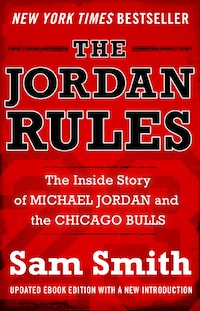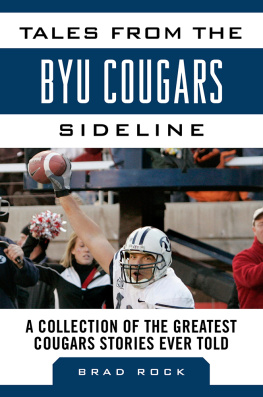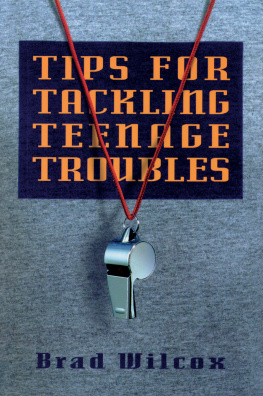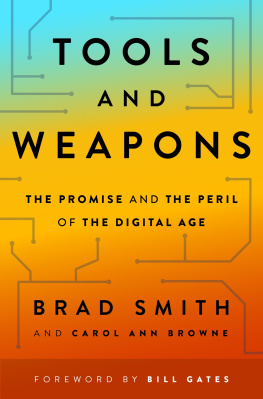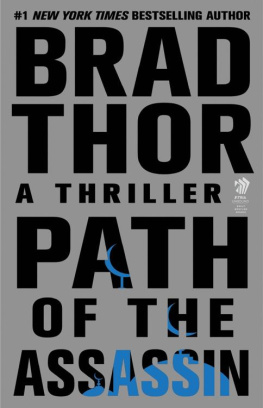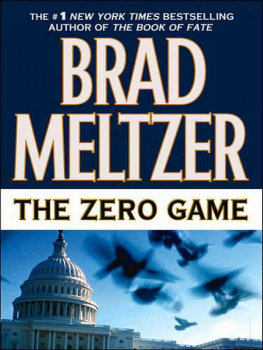JOHNNO
Brad Johnson made his debut with the Footscray Bulldogs in 1994. He became the club games record-holder in 2009 and played his 350th game in Round 1, 2010. Brad has won the clubs best and fairest award three times, is a member of the Western Bulldogs Team of the Century and has earned All-Australian selection six times. He has been the Bulldogs captain since 2006, and in the same year captained the All-Australian team.
James Weston has been writing about AFL since 1986, including during long periods as a journalist with Melbourne metropolitan newspapers the Herald Sun and The Age. As the managing editor and publisher at News Custom Publishing, he oversaw the publishing programs for the 2000 Olympics and Rugby World Cup. James now works for himself and has edited many sports titles, including the comprehensive 150 Years of Football.
JOHNNO
BULLDOG THROUGH AND THROUGH
BRAD JOHNSON
WITH JAMES WESTON
MICHAEL JOSEPH
an imprint of
PENGUIN BOOKS
PREPARE
Late one February evening, Brad Johnson slips his aching right ankle into a supportive brace and crabs his way to bed. Johnsons previous month has been spent on a physiotherapists table, rather than his favoured surface of the Whitten Oval. In this, the 2010 pre-season, his seventeenth preparation with the Bulldogs, horizontal is far less preferable than vertical. It seems his ability to control his environment the very thing that has made him a star of modern Australian Rules has been taken out of his hands.
Johnson lies in bed and ponders the future, immediate and long term. The now is clear: more physiotherapy, perhaps another round of painful injections into his lower leg to promote healing, and a softly, softly approach to returning to health and mobility. The success of that approach will decide the long term.
It has been a frustrating, uncomfortable summer. Shortly after pre-season training resumed in October, just a month after that devastating 2009 preliminary final loss to St Kilda, Johnsons Achilles heel began first to cause him trouble, then to ache constantly. Of all the muscles and tendons in the body few are as unforgiving as the Achilles, which connects the heel to the calf muscle. Once traumatised, the Achilles tendon can demand a lengthy recovery due to its relatively poor blood supply, and age only exacerbates the problem.
The interruption is made worse by Johnsons having missed a large slice of pre-Christmas training after a routine shoulder operation. The word routine needs to be considered in an AFL context this was major surgery, the reattachment of a frayed bicep tendon that had restricted the Western Bulldogs captain throughout the 2009 season. To simply play, Johnson required a painkilling, numbing injection before or during most games; he could barely raise his right arm without it, and that was before you factored in the constant battering an AFL player receives each and every week. For one of the Leagues best contested marks this was not an ideal scenario. Injections like this are not always encouraged. But after all these seasons Johnson has accepted them as part of his theres that word again routine.
You do what you have to do.
For Johnson summer training is not a chore. When he was a relatively new arrival at the then-Western Oval before E.J. Whittens titular legacy was bolted to the venue teammate Scott West gave him some advice about the pre-season grind: enjoy it. There is no pressure to perform in the pre-season, there is only the commitment needed to ensure you do every single thing possible to be ready. Thats not pressure, thats preparation, Johnson says. You know you can do the running, so do it. You know you can train as hard as the next bloke. Again, just do it, and enjoy it. Build a base that allows you to compete all year. It takes away the pressure from March to September. Enjoy the summer of footy. Ive never seen it as a burden, not once. Until now.
A frayed bicep tendon might force an office worker to take a week or two off, such would be the nagging pain every time you used your arm operating that computer mouse can be a killer. A landscape gardener might be out of action for a month or more, unable to place stress on the shoulder joint or bicep. But Johnson not only played every weekend from 29 March to 18 September 2009, of the 31 Bulldog players who managed a senior game that year, the skipper was second in kicks and marks and third in goals. Numbers tell certain stories, of course, and such a performance is what we have come to expect from the captain. Yet the most significant, and impressive, number was this: he was one of only seven to line up in every one of the Bulldogs 25 games.
Apart from his incredible professionalism, his body has this innate, almost freakish ability to heal, says club doctor Jake Landsberger, who has been at the Whitten Oval for 25 years and believes Johnson to be the most remarkable specimen he has managed. There are injuries that the average player might take four to five weeks to recover from and hell take one or maybe two. Thats not an exaggeration.
Unfortunately a recurring Achilles heel problem is beyond even Johnsons recuperative powers. A highly tuned sportsman with two decades of elite football behind him, he eases out of bed each morning and hobbles like an octogenarian. Some mornings, Brad just cant walk. Hell sit on the edge of the bed and wait for the blood to get flowing in his legs, says his wife, Donna, who sees this daily struggle more intimately than anyone else. Especially in the two days after a game, hell take fifteen minutes to get moving. It takes him that long to get down the hallway. There are times when Donna mows the lawns on a Sunday while Brad sits inside, icing his ailments, or is elsewhere, on a physio table, preparing for another round of treatment. As she mows, and weeds, she endures the ribbing of neighbours, yet she knows these are small but telling signs that the game of football, and its rewards, exacts a price. And during the summer of 2010, a casual stroll down the hallway by her husband has been added to that bottom line.
Football mortality presents itself in a variety of ways. It is most often a form of sporting homicide: match committees kill off more careers than anything else, with the average lifespan of an Australian Football League player being around five seasons. Salary caps also squeeze out talent, and personality clashes or poor behaviour cull a handful each season. In some respects it is the lucky who find age to be their enemy.
When you study the retirement ages of players, it is clear the demands of the modern game at the very least its pace and the length of the season plus the demanding pre-season is forcing players out of the game at a younger age. Of the seventeen players with the oldest retirement ages in League history, only three (38-year-olds Craig Bradley and Michael Tuck, and Paul Salmon, 37) closed their careers later than 1946. Brad Johnson, age 33 when season 2010 commenced, is young by nearly every other social measure if your local MP were 33, he or she would be considered borderline precocious but footballers age in dog years. In this case, Bulldog years. The 2009 retirement of popular Richmond forward Matthew Richardson at age 34 meant only one active player, Essendon veteran Dustin Fletcher, was Johnsons senior, his being born fourteen months earlier than the Bulldogs July 1976 arrival. Father Time is coming up the front path, and Johnno knows it.
It started a year earlier, actually. The 2009 pre-season was the first time I even considered whether the year coming up was going to be my last one, he confesses. Then in the [2009] season we played a couple of back-to-back, six-day breaks between games and my body was just screaming. I actually spoke to my agent, Ricky Nixon, about whether I could even get through the year. Understand this is a man who has



